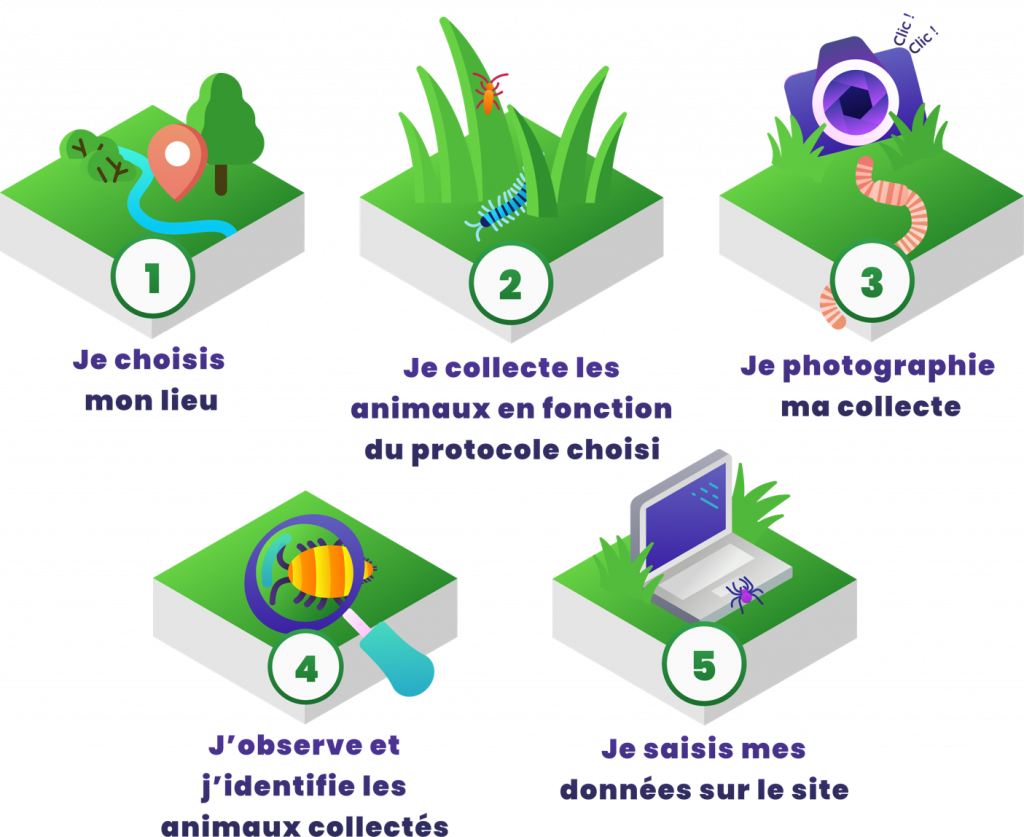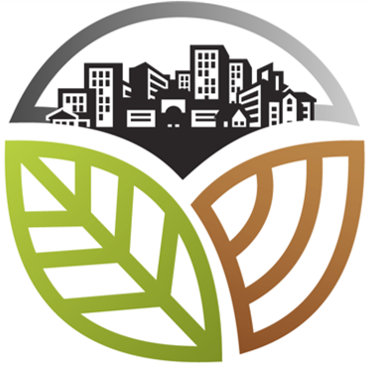Objectives
The Soil Biological Quality observatory (QUBS) is a citizen science program accessible to all to assess the diversity and abundance of invertebrates indicating soil quality.
QUBS, the acronym for soil biological quality, refers to the abundance, diversity and activity of living organisms that participate in the functioning of soils and allow them to perform essential functions (biomass production, carbon (C) storage, regulation of pest species, degradation of pollutants, biogeochemical cycles…).
Assessing whether a soil has low or high biological quality requires comparison with reference values that depend on climate, soil type and use, and many other factors. To calculate these reference values, a lot of data is needed. This is why QUBS needs you!
This program aims to :
- inform a database on the biological quality of soils, thus contributing to the improvement of knowledge on soil biodiversity and its links with management practices and uses.
- raise awareness among citizens about this hidden biodiversity, often little known, and the issues related to the preservation of soil biodiversity.
affiliate programs

Jardibiodiv
Jardibiodiv is a participatory science programm on the soil urban biodiversity developed by the “Sol Environnement Laboratory” (UMR University of Lorraine – INRAE).

Vigie Nature
Vigie-Nature is a participatory science program aiming at studying the future of biodiversity in the face of global change at a French scale, bringing together fifteen programs. Founded by the Muséum national d’Histoire naturelle, Vigie-Nature is co-leaded by the MNHN and the Office Français de la Biodiversité and is coordinated in collaboration with NGOs.

Particitae
Created within the OSU Ecce Terra, PartiCitaE is a participatory observatory of the urban environment. It is a tool available to all, jointly led by researchers and city dwellers to pursue two objectives: 1) to build a systemic knowledge of the urban environment by combining scientific methods and citizen participation and 2) to accompany the environmental transition by working on issues specific to the urban environment.

How participate ?
Choose the protocol of your choice and follow the different steps. All our protocols are based on taking pictures to share on the platform.
Who ?
Qubs is a program accessible to everyone. No prior knowledge of nature is required to participate!
